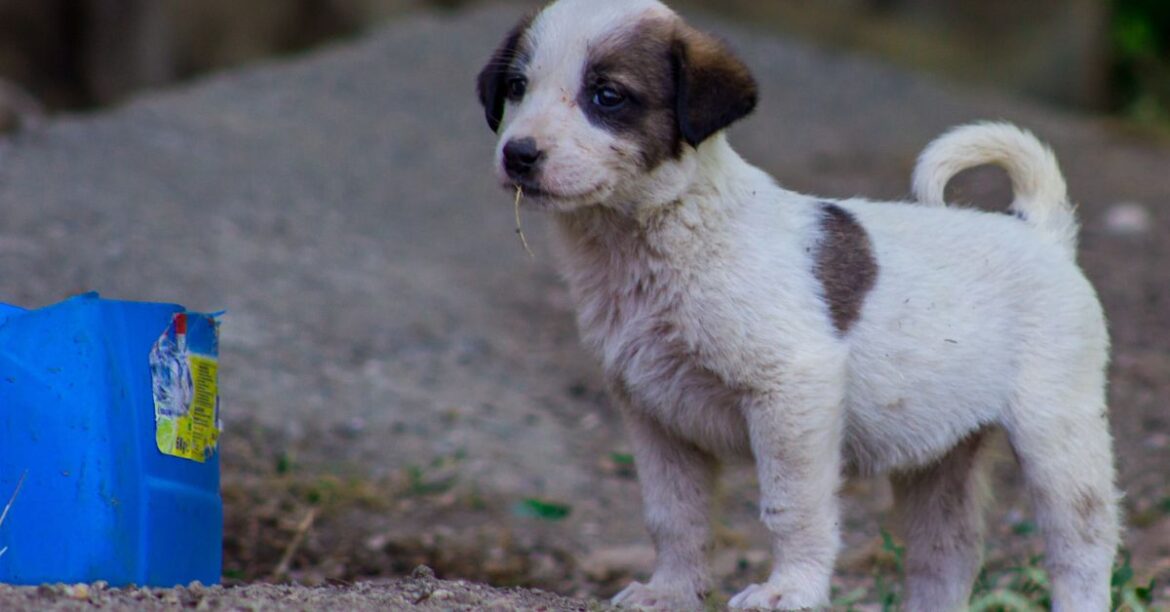As a new puppy parent, you might find yourself asking, “Why won’t my puppy pee outside?” This is a common issue for many dog owners, but it doesn’t mean you’re failing as a pet parent. Puppies can have a variety of reasons for avoiding outdoor potty breaks, ranging from health concerns to training mishaps. Understanding the underlying causes can help resolve the issue and improve your puppy’s potty training routine. In this article, we’ll explore several possible reasons why your puppy might be reluctant to pee outside, as well as actionable tips and advice to address the situation.
Common Causes Behind Your Puppy’s Reluctance to Pee Outside
Puppies can be stubborn, and their refusal to pee outside often has an underlying reason. Here are some common causes:
Fear of the Outdoors:
Puppies may be scared of unfamiliar outdoor environments. They could be afraid of loud noises, new surroundings, or other animals, which may make them hesitant to go outside. can be a common reason why puppies avoid peeing outside. Some puppies may feel anxious or scared in unfamiliar environments due to loud noises, new surroundings, or the presence of other animals. This fear can make them reluctant to go outside, hindering their potty training progress and requiring gentle encouragement and patience.
Health Issues:
Medical problems like urinary tract infections (UTIs) or bladder issues can make urination painful, causing your puppy to avoid outdoor pee breaks. can prevent puppies from peeing outside comfortably. Conditions like urinary tract infections (UTIs), bladder stones, or incontinence can cause pain or discomfort while urinating, making your puppy reluctant to go outdoors. If your puppy consistently avoids outdoor potty breaks, it’s essential to consult a veterinarian to rule out any medical problems and provide proper treatment Blue Jay Sound Like.
Not Enough Training:
Inadequate housebreaking and inconsistent training may lead to confusion about where it’s appropriate to pee. can lead to confusion about where and when your puppy should pee. Inconsistent routines, lack of positive reinforcement, or insufficient exposure to outdoor potty breaks can result in accidents indoors. Establishing a consistent schedule, using rewards, and providing clear guidance will help your puppy understand proper potty behavior and encourage them to pee outside.
Distractions Outside:
Puppies, especially young ones, may get distracted easily and forget their potty needs when there’s so much to explore outdoors. can make it difficult for your puppy to focus on potty time. New smells, sounds, or other animals in the environment may capture their attention, preventing them from urinating. To help, choose a quiet spot for potty breaks, limit exploration time, and gently redirect your puppy’s focus back to their potty needs to ensure success.
How Fear Can Affect Potty Training
It’s important to recognize that your puppy’s fear of going outside might be a significant factor. If your puppy is scared, it can take time to build their confidence. Begin by making the outdoor experience more comfortable for them. Start with short trips and gradually increase the duration of outdoor potty sessions.
Creating Positive Associations with Outdoor Potty Time
It’s crucial to make the outdoor potty experience enjoyable and positive for your puppy. Here are some tips:
Use Praise and Rewards:
Every time your puppy pees outside, immediately give them praise and a small treat. This helps them associate peeing outdoors with something pleasant. to reinforce positive potty behavior. When your puppy pees outside, immediately offer verbal praise and a small treat. This helps them associate outdoor potty breaks with something pleasant, making them more likely to repeat the behavior. Consistent rewards create positive reinforcement, encouraging your puppy to continue using the outdoors as their potty spot.
Establish a Routine:
Consistency is key in puppy training. Take your puppy outside at the same times every day, especially after meals, naps, and play sessions, as these are common times puppies need to potty. to help your puppy understand when it’s time to go outside. Take them out at regular intervals, especially after meals, naps, and playtime. Consistency will help your puppy learn when they should expect potty breaks and create a sense of security, making it easier for them to go outside and relieve themselves regularly.
Designate a Potty Spot:
Lead your puppy to the same spot each time you go outside. The scent will remind them that it’s time to potty. to help your puppy associate a specific area with potty time. Take them to the same spot each time you go outside. The familiar scent will encourage your puppy to urinate in that spot, making potty training easier and more effective. Consistency with the designated area helps your puppy build good habits.
Patience and Persistence in Training
Training your puppy to pee outside takes time, patience, and repetition. Avoid getting frustrated or punishing your puppy if accidents happen indoors. Instead, focus on reinforcing positive behaviors.
Is Your Puppy’s Health Affecting Their Potty Habits?
Before jumping to conclusions about your puppy’s behavior, it’s essential to rule out any medical issues. Here are a few health-related concerns to consider:
Urinary Tract Infections (UTIs):
UTIs are common in puppies and can cause discomfort when urinating, leading to a reluctance to go outside. can cause discomfort and pain while urinating, making your puppy reluctant to pee outside. Symptoms include frequent accidents indoors, straining to urinate, or blood in the urine. If you suspect a UTI, it’s crucial to consult a veterinarian for diagnosis and treatment. Early intervention can prevent further complications and relieve your puppy’s discomfort.
Bladder Stones or Incontinence:
Health problems such as bladder stones or incontinence may make it harder for your puppy to control their bladder. can lead to difficulty or discomfort during urination, causing your puppy to avoid peeing outside. Bladder stones can block the urinary tract, while incontinence may result in accidents or urgency. If your puppy shows signs of pain or frequent accidents, it’s essential to consult a vet for proper diagnosis and treatment to manage the condition New York.
What to Do If You Suspect a Health Issue
If you suspect your puppy’s potty issues are health-related, consult your veterinarian as soon as possible. They can perform tests to identify any medical conditions that might be interfering with your puppy’s ability to pee outside.
Minimize Distractions to Help Your Puppy Focus
Puppies are naturally curious, and outdoor environments can be filled with distractions that make it hard for them to focus on their potty needs. Here’s how to help:
Choose a Quiet Spot:
Take your puppy to a quieter, less stimulating part of your yard or park for potty breaks for your puppy’s potty breaks to minimize distractions. A calm, low-traffic area helps them focus on relieving themselves without being overwhelmed by noises or movement. This encourages quicker and more successful potty sessions. By selecting a quiet, familiar spot, your puppy can feel more secure and comfortable, making outdoor potty training easier.
Limit Exploration Time:
Keep the potty session short and focused. Allow your puppy to sniff around but redirect their attention back to peeing when necessary during potty breaks to help your puppy stay focused. While outdoor exploration is important, too much wandering can distract them from their potty needs. Keep potty sessions brief and redirect their attention to the task at hand. Once they relieve themselves, reward them, then allow a longer Walk in Heels exploration period as a reward for good behavior.
Stay Calm and Collected:
Puppies often pick up on your emotions. If you’re stressed or anxious about potty training, your puppy may pick up on that energy. Stay calm and patient to help your puppy feel more secure during potty training to help your puppy feel secure. Puppies are sensitive to your emotions, and if you appear frustrated or anxious, it may increase their stress. Approach outdoor potty breaks with patience and positivity, creating a calm atmosphere that encourages your puppy to focus on the task and build confidence in their training.
Puppy Potty Training Assistance
If your puppy is still refusing to pee outside after trying the tips mentioned above, it may be time to seek help from a professional trainer. A dog trainer can offer guidance tailored to your puppy’s specific needs and help address behavioral or training issues.
Potential Medical Interventions
In some cases, health problems such as UTIs or bladder infections require medical intervention. Your vet will be able to prescribe the appropriate treatment and guide you in how to manage your puppy’s potty habits going forward.
FAQ
1. Why does my puppy refuse to go outside to pee?
Puppies may avoid peeing outside due to fear, medical issues, or lack of proper training. It’s important to identify the root cause to address the issue.
2. How long should I wait before taking my puppy outside to pee?
It’s essential to take your puppy outside every 2-3 hours, especially after meals, naps, and playtime.
3. My puppy is scared of going outside. What can I do?
Start by introducing your puppy to the outdoors gradually. Use positive reinforcement like treats and praise to make outdoor potty time more enjoyable.
4. Could my puppy’s reluctance to pee outside be due to a health issue?
Yes, health problems like UTIs or bladder stones can cause discomfort when urinating. If you suspect this, consult your vet.
5. How can I stop my puppy from getting distracted during potty time?
Try taking your puppy to a quiet area for potty breaks and limit exploration time until they’ve relieved themselves.
6. When should I seek professional help with potty training?
If your puppy continues to resist outdoor potty breaks despite consistent training, it might be time to consult a professional trainer.
Conclusion
Training a puppy to pee outside can be challenging, but with the right approach, consistency, and patience, you’ll get there. Whether it’s addressing fears, tackling distractions, or considering health concerns, there’s always a solution to the problem. By understanding your puppy’s needs and making their outdoor experience positive, you can help them form good habits that will last a lifetime.




